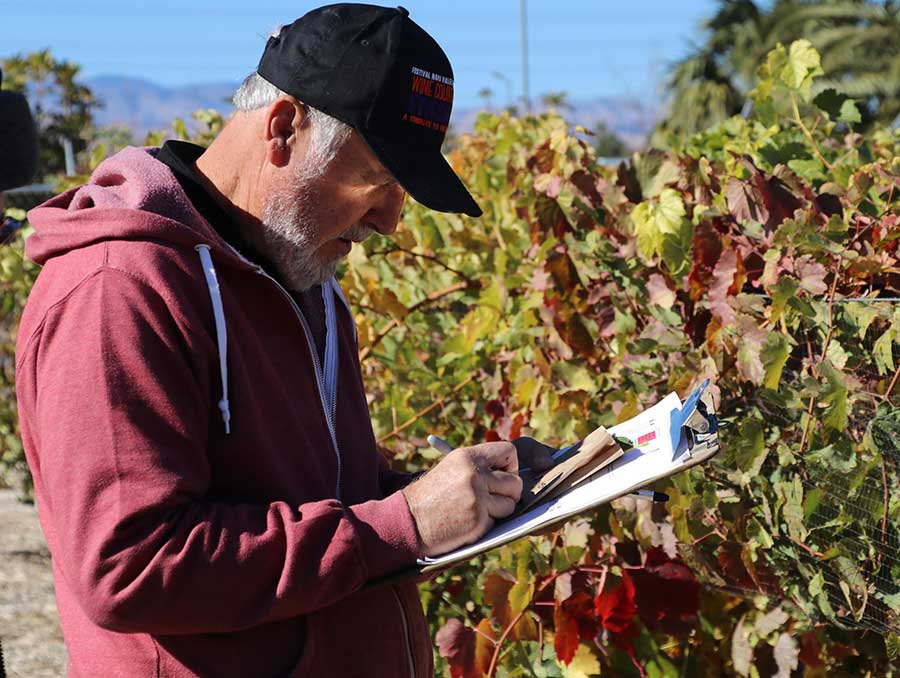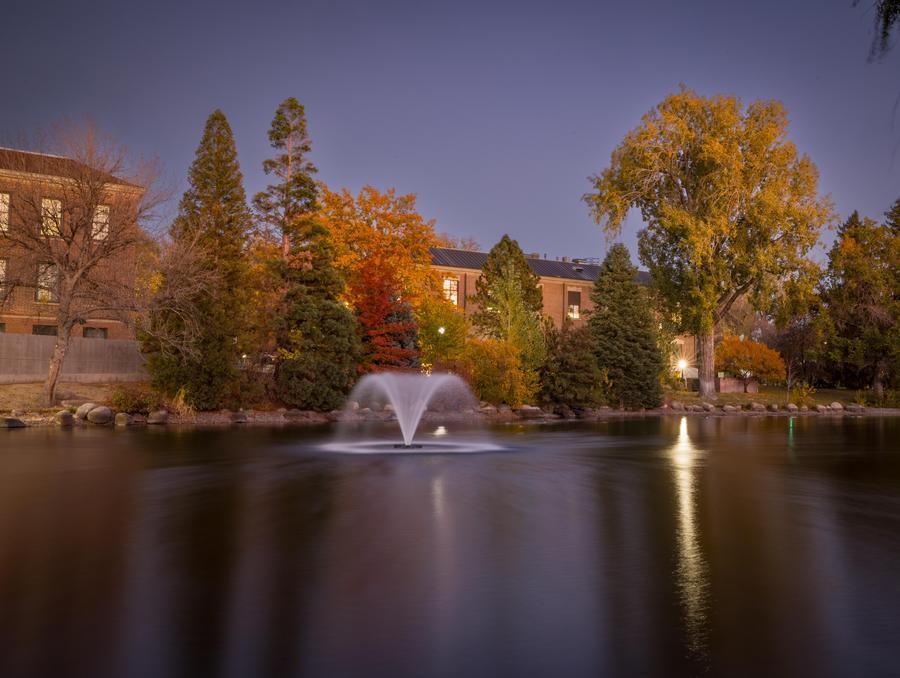University of Nevada, Reno’s College of Agriculture, Biotechnology & Natural Resources has a long history of seeking the best grapes for Nevada’s deserts. And with a new partnership and a new 3-year, $167,809 grant from the U.S. Department of Agriculture and State of Nevada through the College’s Nevada Agricultural Experiment Station, the College will continue this legacy.
Earlier this year, Biochemistry Professor Grant Cramer, with the Experiment Station, and Associate Professor and Horticulture Specialist M.L. Robinson, with the College’s Cooperative Extension unit, partnered with Oregon State University to investigate a hormone called abscisic acid and its role in drought- and salt-tolerant grapes.
Previous research
The grant allows them to continue collecting data for grape hybrid trials already being conducted at the Southern Nevada Research Center and Demonstration Orchard. The hybrids were grown as part of the Table and Wine Grape Project, which began as a partnership with Andy Walker, a grapevine breeder with University of California, Davis. Together, the team tested several varieties, including some discovered by Walker, as grape rootstock that grows well in dry, salty soil.
The U.C. Davis project concluded last year with positive results, showing that many wine grape varieties work well in southern Nevada. Many of the varieties grew exceptionally well without needing fertilizer, and some have been provided to local winemakers.
“The results show that we can produce drought-resistant high-quality grapes for wine,” said Robinson. “They taste good for eating as a snack, too.”
The team is in the process of compiling the project’s results for publication, and Robinson and his Extension Master Gardeners are harvesting and providing some of this year’s 22 wine grape varieties and two table grape varieties to local wineries and residents, as well as providing classes on harvesting and processing the fruit.
New research
Grant, Robinson and the team hope the new partnership with Oregon State will give some additional insight into how abscisic acid works. Once they figure out why the hormone reacts differently in different grapevines when exposed to low water levels and high-salt soils, they can use the information to make breeding decisions to refine the selection of grapes that produce commercial crops that thrive in southern Nevada and places with similar climates. Graduate Student Haley Toups traveled to Oregon State University this summer to study the hormone.
“By understanding the hormone’s mechanisms, we can breed even more grapes that are drought- and salt-tolerant,” said Cramer.
Additional research
The Demonstration Orchard is a partnership between the College’s Extension unit and the University of Nevada, Las Vegas. Other grape research being done by the University includes investigating techniques for advancing viticulture in northern Nevada’s high desert climate. Desert Farming Initiative Project Manager Charles Schembre recently planted 1-acre demonstration vineyard of cabernet franc, merlot and malbec wine grapes, expanding upon more than 20 years of wine grape research done at the Experiment Station at the University of Nevada, Reno.












